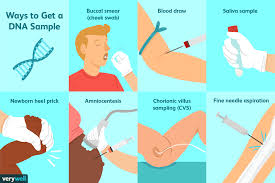Successful birth after preimplantation genetic testing for rare mitochondrial DNA mutation m.10197G>A
Here we report the first successful birth after preimplantation genetic testing for m.10197G>A mutation, a rare variant responsible for Leigh encephalopathy. Preimplantation genetic testing diagnosed the embryo with a mutant load of <5%, and transfer resulted in a live birth. The mutant load of embryos diagnosed in this case was skewed to the extremes. Skewed segregation patterns have been observed in common mutations, but this case suggests that the same phenomenon may be seen in this rare mutation.
Mitochondrial DNA (mtDNA) disorders are usually heteroplasmic, with cells harboring both wild-type and mutated mtDNA. They may become apparent once the number of affected mitochondria reaches a certain level. The threshold varies from tissue to tissue, and the percentage level of mutant mtDNA (mutant load, ML) also varies between and within individuals, making it difficult to establish a diagnosis. This is why there is no curative treatment currently available. A great deal of attention has been focused on the field of assisted reproductive technology, and preimplantation genetic testing (PGT) has emerged as an effective preventive option to identify embryos with MLs below disease-causing thresholds.
Not all mtDNA disorders are suitable for PGT, but studies on some of the common mtDNA mutations have shown a correlation between mtDNA heteroplasmy levels in the blastomeres and those in tissues throughout embryo–fetal development. Successful cases of PGT for these mutations, especially m.8993T>G mutation, have been reported to lead to the birth of a healthy baby.
The m.10197G>A mutation (NC_012920.1:m.10197G>A) is a rare pathogenic mutation of Leigh encephalopathy (LE). In a report of three different families with m.10197G>A, all affected children had severe LE with onset in infancy, with most dying within the first 1–2 years of life. Studies on Japanese patients with LE have reported the rarity of this variant in Japan and that LE in MT-ND3 gene is often severe. Here, we report the first successful PGT performed for the m.10197G>A mutation.
A 32-year-old female carrier of the m.10197G>A mutation in the MT-ND3 and her husband requested PGT to fulfill their desire for a healthy child. Their son (proband) was born at term following an uneventful pregnancy of healthy unrelated parents. From soon after birth, he had feeding difficulties and weight gain was poor. Psychomotor retardation became apparent by 4 months, and at 6 months of age, he was hospitalized for respiratory insufficiency. LE was suspected from these symptoms, and analysis of mtDNA mutation was carried out using peripheral blood. The results confirmed homoplasmy of a point mutation in the ND3 region, and a genetic diagnosis of LE was made. He died 7 months after birth owing to LE. The ML of the son and the mother was >99% and 11%, respectively. . After thorough genetic counseling for alternative methods of reproduction including PGT, informed consent was obtained. The study was approved by both ethical committees of the institute and Japan Society for Obstetrics and Gynecology.
gene mutation, point mutation, frameshift mutation, insertion, deletion, missense mutation, nonsense mutation, silent mutation, chromosomal mutation, genetic variation, somatic mutation, germline mutation, mutagenesis, DNA replication error, base pair substitution, genetic disorder, mutation hotspot, oncogene mutation, inherited mutation, spontaneous mutation,
#DNAmutation, #genetics, #molecularbiology, #mutations, #genetherapy, #genomeediting, #CRISPR, #DNAdamage, #genomicinstability, #hereditarydisease, #somaticmutation, #germlinemutation, #cancergenetics, #DNArepair, #pointmutation, #mutationresearch, #geneticvariation, #mutationtypes, #genemutation, #DNAchange
International Conference on Genetics and Genomics of Diseases
Visit: genetics-conferences.healthcarek.com
Award Nomination: genetics-conferences.healthcarek.com/award-nomination/?ecategory=Awards&rcategory=Awardee
Award registration: genetics-conferences.healthcarek.com/award-registration/
For Enquiries: contact@healthcarek.com
Get Connected Here
---------------------------------
---------------------------------
in.pinterest.com/Dorita0211
twitter.com/Dorita_02_11_
facebook.com/profile.php?id=61555903296992
instagram.com/p/C4ukfcOsK36
genetics-awards.blogspot.com/
youtube.com/@GeneticsHealthcare

Comments
Post a Comment